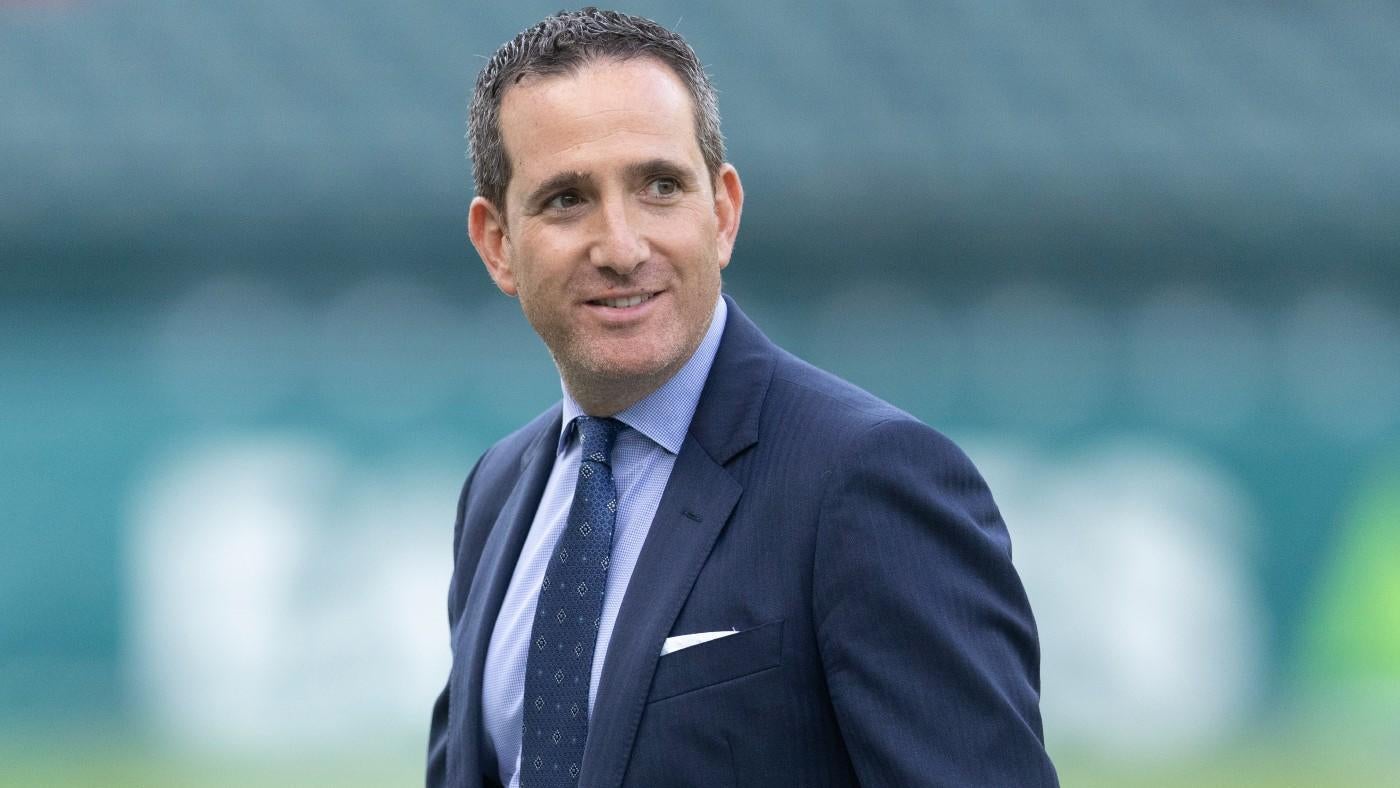Amid college protests and arrests over Gaza, White House says: ‘We don’t want to see anybody hurt’
Written by ABC Audio ALL RIGHTS RESERVED on April 28, 2024
As protests over Israel’s war against Hamas in Gaza and the treatment of civilians continue at dozens of colleges and universities across the country, the White House says that President Joe Biden respects the right of demonstrators to make their voices heard — peacefully — but “we don’t want to see anybody hurt in the process” as some protests are met with police crackdowns.
“The president knows that there are very strong feelings about the war in Gaza. He understands that, he respects that, and as he has said many times, we certainly respect the right of peaceful protest. People should have the ability to air their views and to share their perspectives publicly, but it has to be peaceful,” White House national security communications adviser John Kirby told ABC News “This Week” anchor George Stephanopoulos on Sunday.
Kirby did sound a warning, though, that some language heard in the mushrooming demonstrations crossed a line with the administration.
“We absolutely condemn the antisemitism language that we’ve heard of late, and we certainly condemn all the hate speech and the threats of violence out there. These protests, we understand they’re important, but they do need to be peaceful,” he said.
Many of the groups behind the pro-Palestinian demonstrations, some of which have turned into ongoing encampments, have denounced antisemitism and sought to distance themselves from any such conduct, saying it’s not representative of their goals or values in calling attention to the civilian toll in Gaza.
The protests have largely been peaceful, according to officials.
There have also been mass arrests, drawing its own criticism, with police accusing some demonstrators of trespassing, resisting arrest and other crimes.
After more than 80 people were detained this weekend at Washington University in St. Louis, the school said in a statement, in part, “We are firmly committed to free expression and allow ample opportunity for voices to be heard on our campus. However, we expect everyone to respect our policies and we will take swift action to enforce them to their fullest extent.”
Pressed about the police response on “This Week,” Kirby told Stephanopoulos: “We’ll leave it to local authorities to determine how these protests are managed, but we want them to be peaceful protests and obviously we don’t want to see anybody hurt in the process of peacefully protesting.”
The demonstrations and the ensuing responses have set off a debate over free speech on college campuses and again elevated domestic tensions around the war in Gaza, which was set off by Hamas’ Oct. 7 terrorist attack on Israel. More than 34,000 Palestinians have been killed in Israel’s military response, according to Gaza’s Hamas-run health ministry.
Kirby said Secretary of State Antony Blinken will be pushing hard for a six-week cease-fire in a trip to the region this week, and the administration hopes that could turn into a more lasting halt to the fighting.
“We want it to last for about six weeks. It will allow for all those hostages [held by Hamas] to get out and, of course, to allow for easier aid access to places in Gaza, particularly up in the north. So, he’s going to be working on that very, very hard,” Kirby said of Blinken.
The White House has been pushing for such a deal for months. An earlier cease-fire agreement, in which Hamas also freed some of the hostages it took on Oct. 7, was briefly in effect late last year.
“What we’re hoping is that after six weeks of a temporary cease-fire, we can maybe get something more enduring in place. We want to see an end to the conflict as soon as possible,” Kirby said on “This Week.”
He also said Blinken intends to learn more about what the Israelis plan to do regarding the southern Gaza city of Rafah. Israeli Prime Minister Benjamin Netanyahu has insisted that the country’s forces must go into Rafah as part of the fight against Hamas, though hundreds of thousands of civilians are also thought to be sheltering there.
Kirby conceded on Sunday that while the U.S. will be able to have its say before Israel begins its operations in Rafah, the administration does not have a firm grasp of what the Israeli military’s goals and intentions are.
Stephanopoulos noted that in the event of an invasion of the city, “any prospect of any short-term — of a short ending to the war is completely over.”
“We have to have a better understanding from the Israelis about what they want to do,” Kirby said, adding, “They’ve assured us they won’t go into Rafah until we’ve had a chance to really share our perspectives and concerns with them. So we’ll see where that goes.”
A large-scale incursion of Rafah risks exacerbating a dire humanitarian crisis in Gaza, with international observers warning of disease and potential famine.
Kirby praised the U.S. military’s building of a pier off the Gaza shore — “probably to two to three weeks” away from operation — to help deliver aid but said nothing would replace increases in distribution of assistance over land routes.
“And I will say that they have been increasing the amount of trucks that have been getting into Gaza,” Kirby said of the Israelis. “Now, there are still challenges on the ground in getting it up into the north, but that’s starting to happen.”
Copyright © 2024, ABC Audio. All rights reserved.







